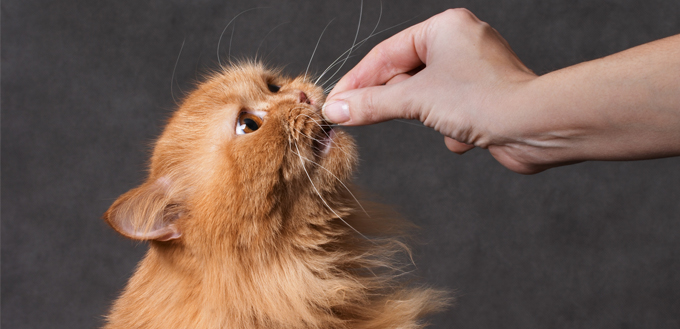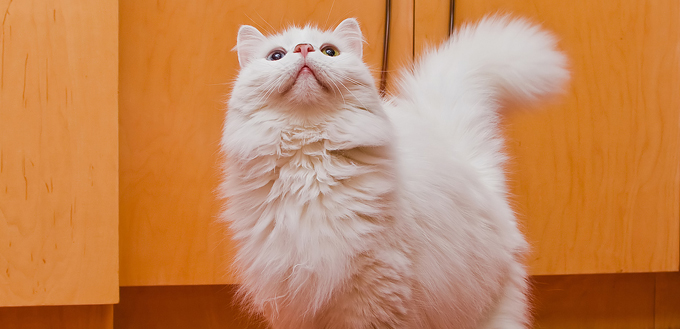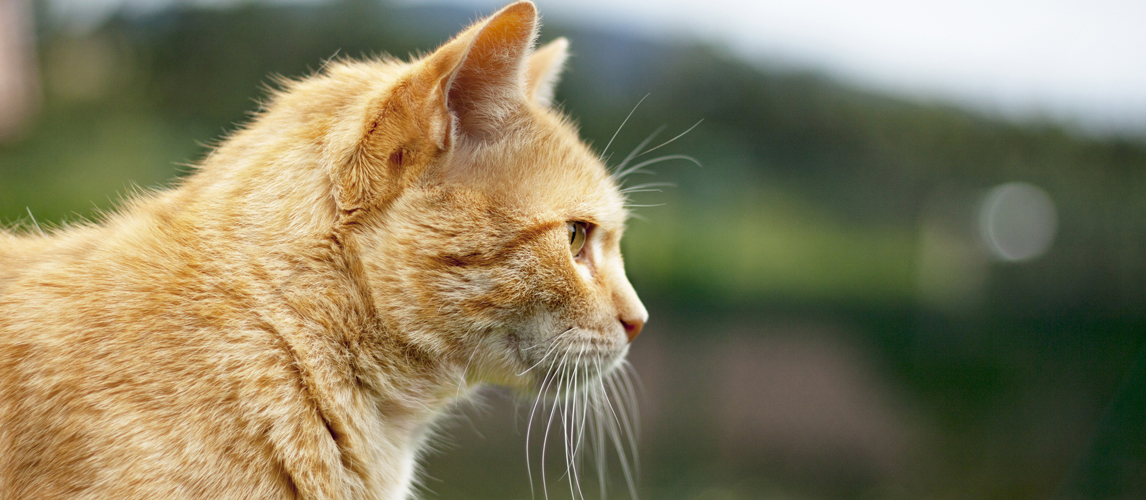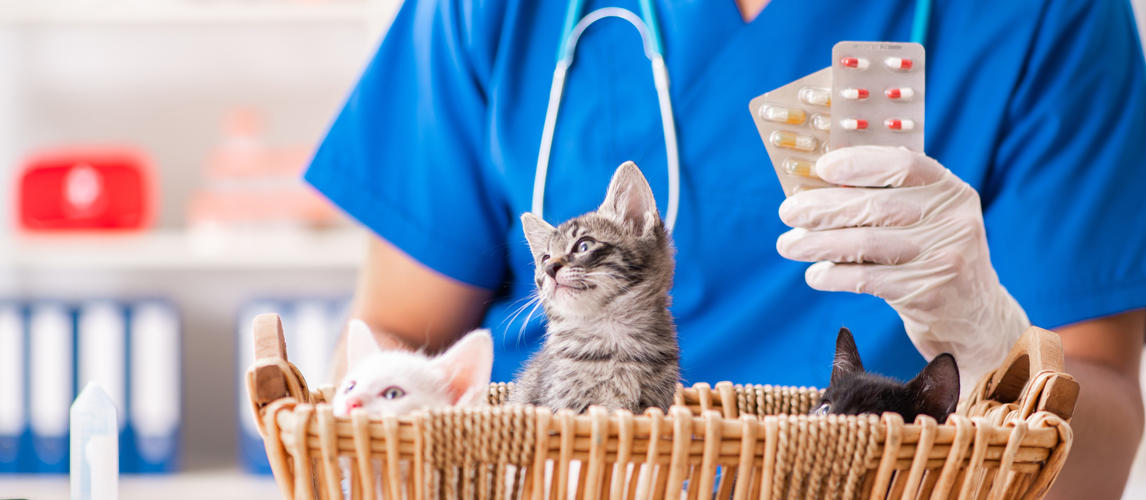Just like supplements for humans, pet supplements have become fashionable in recent years, which is why they are now a billion dollar industry! But just because something is popular, doesn’t mean it is necessary, or even good. Unfortunately, anyone can claim to sell health aids for your cat, but they might not necessarily have the research to back it up. With all this false information about, here is our quick little guide about supplements to help you understand when to give them to your cat, and when it might be a waste of your money.

What is a Supplement?
A supplement is usually a nutrient or vitamin, or a combination of nutrients and vitamins, that are added to your cat’s diet with the aim of improving their health. They can come in many forms, such as pills, powders, and even injections, and are advertised as a beneficial addition to your cat’s diet. No reputable company would suggest using supplements instead of a healthy and balanced diet of good quality cat food.
Related Post: Best Vitamins For Cats
Should You Buy Your Cat Supplements?
Frankly, no, you probably shouldn’t. Most cat owners do not need to provide their cats with supplements. Supplements are unnecessary if they have a balanced diet of good quality cat food because cat food is developed carefully through feeding trials to provide everything that their little bodies need. Giving supplements to your cat may even be dangerous because it may unbalance their diet, creating toxicity or other health issues.
Cats that are ill may need supplements, however, but this is usually advised to you by your vet when they are diagnosed with an illness or condition. Supplements used in this manner are used to correct deficiencies. A healthy cat with a healthy diet should not have any deficiencies. If you think your cat may need supplements, discuss this with your vet. Conditions or illnesses that may require supplements include:
- Small intestinal disease
If your cat has small intestinal disease, they may be suffering from an inability to absorb some important nutrients, such as B vitamins folate and cobalamine.
- Pregnancy
A pregnant cat may suffer from some nutritional deficiencies, particularly if they are younger than one-year old.
- Joint problems
Arthritis, for example, can be improved using glucosamine and chondroitin, and Omega-3 fatty acids can be used as an effective anti-inflammatory.
- Dementia
An aging cat with dementia can be helped using vitamins E and C or other antioxidants, as they have been known to protect and repair brain cells.
Supplements and Safety
Essentially, the best advice is to only give your cat supplements if they are prescribed by a vet because they are ill or struggling with a deficiency. This is the golden rule about your cat’s health – consult your vet if you have any doubts, questions or concerns. Other important safety issues to remember include:
- Don’t give your cat too many supplements
You might think that more is better, but when it comes to supplements this is not that case. Many supplements have the same nutrients and ingredients, even if they are intended to help with different aspects of your cat’s health. Mixing supplements often results in over-supplementation. This means your cat is getting too much of certain nutrients, which causes negative side effects.
As we’ve already touched on, giving a cat supplements when they don’t need them puts them at risk of toxicity. Toxicity is closely related to poisoning and essentially means that your cat has an imbalance of chemicals in their bodies. Even if these chemicals are usually associated with healthiness, you can have too much of a good thing. Symptoms could range from tremors to vomiting, so keep an eye out for any problems that may arise. Remember that it may take some time for your cat’s diet to become imbalanced, so watch out for both short-term and long-term effects of any supplement you give to them.
- Do not give your cat any human supplements
Similarly, human supplements can also have the wrong proportions of otherwise healthy nutrients and vitamins. This means it is inappropriate for you to use human vitamins as a substitute for any cat supplements that your vet has advised you to give to your cat. Too much vitamin D, for example, can cause permanent issues with your cat’s organs. Human sized pills may also present a choking hazard.
There are also some human vitamins that are toxic to pets in any amount. Iron, most often found in prenatal vitamins, is particularly dangerous. If you suspect that your cat has ingested iron supplements, call a vet immediately. You should generally keep all medicines and vitamins out of reach from all of your pets, just to be safe.
- There are some unsafe supplements
Human supplements are, unfortunately, not the only supplements that are unhealthy for cats. There are some supplements that are advertised specifically for cats that are actually very dangerous. These unsafe supplements include:
- Garlic and onion, which causes anemia by destroying red blood cells
- Calcium and Vitamin D, which can cause toxicity if over-supplemented
- Vitamin C, which can cause crystals and blockages if over-supplemented

What are Nutraceuticals?
Nutraceuticals are another increasingly fashionable health trend. If you haven’t heard about nutraceuticals, they are pharmaceutical nutrients which are currently regulated as dietary supplements. However, they do not have a legal definition in the US, and are considered food or drugs in Canada.
Due to this confusion in legal jargon, you may have heard that nutraceuticals are supplements, but this is misleading. They are considered drugs by most professionals as they are used to treat or prevent diseases. While they are often naturally-sourced medicines, it is important to that pet owners understand that not everything natural is always safe or effective.
The issues surrounding nutraceuticals highlights that many dietary supplements in the US do not require FDA approval. This just makes it all the more important that you consult your vet about any and all nutraceuticals, supplements, drugs and medicines that you are intending to give your cat.
Sources:
- Kelli Miller, Cat Vitamins and Supplements: Do They Work?, WebMD
- Ashley Gallagher, DVM, Should I Give My Cat Supplements?, PetMD
- Katie Burns, Assessing Pet Supplements, American Veterinary Medical Association
Note: The advice provided in this post is intended for informational purposes and does not constitute medical advice regarding pets. For an accurate diagnosis of your pet's condition, please make an appointment with your vet.






